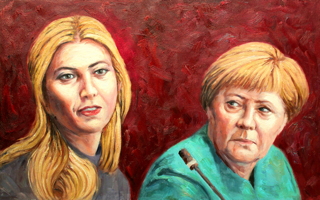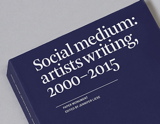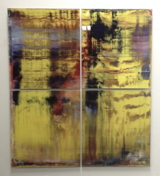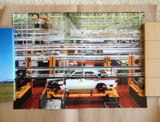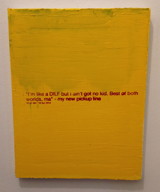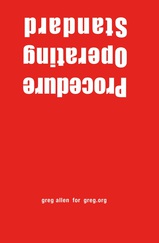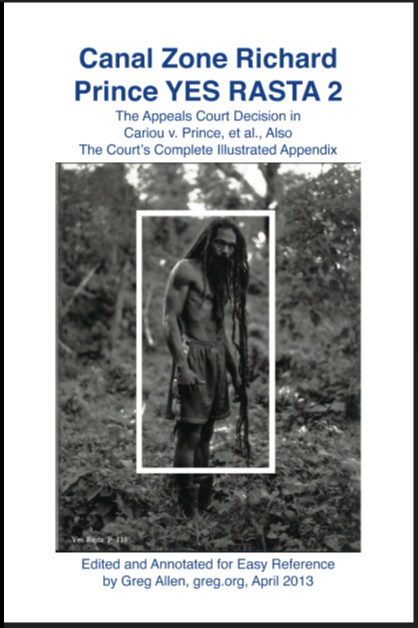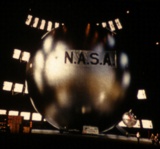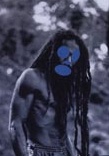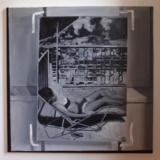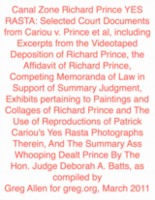What with all this Prince in my head, I start seeing and reading and remembering things in relation to the Canal Zone case. For instance:
In conjuring up a meaning for Richard Prince's Canal Zone work that fit the crime she was convicting him of, Judge Batts cited part of a 1978 essay on Appropriation Prince wrote, which he was asked about in his deposition. 1978!
I feel that I like to get as much fact into my work and reduce the amount of speculation. I believe there's too much--I like an artwork where that when you see something, like a cowboy or a girlfriend, I mean these are, in fact, true.Batts decided that this meant Prince appropriated Patrick Cariou's photos because he was trying to convey the same "core truths" about Rastafarianism as Cariou. But it actually made me think of a quote from Greg Foster-Rice's essay in his just-released anthology, Reframing the New Topographics, where he discussed the influential early 70s photography show in terms of systems theory, and in particular the system of photography itself:
Photographs, in other words, are distinct from other forms of representation in that their connoted messages are built upon a widely held belief in the medium's denotative status as an almost perfect copy of the real.I have to say, I really hated Canal Zone when I first saw it, but the more I study and think about it, I'm coming around. In one sense. Prince was making paintings about photography, and about the different expectations of truth and subjectivity, fact and fiction, each medium embodies. Which is nice.
Then there's the kicker from Steven Stern's review of Spiritual America: The Guggenheim Retrospective in Frieze:
Perhaps the key joke for the retrospective is one that appeared in several different paintings: 'Man walking out of a house of questionable repute, muttered to himself, "Man, that's what I call a business ... you got it, you sell it, you still got it".' A museum is, after all, a house meant to settle questions of repute. And this particular museum exhibition was, among other things, a comment on Prince's clearly impressive 'business'. Like the one described in the joke, this industry depends on a seemingly magical economy: the slippery way that things that aren't exactly objects - such as images and sex - get valued. Prince is a connoisseur of such economies. For better or worse, no matter how much he's sold, he's still got it.That is just awesome.
And last but certainly not least, is Pablo Picasso, who Prince cited repeatedly as a model and an inspiration for his work. This quote is from an awesomely forthright talk Frances Stark gave at Mandrake Bar in LA in December 2009 as part of the Contra Mundum series. Ro/Lu, you're off the hook, but the rest of you out there, are in deep trouble for not telling me about the published version of Contra Mundum I-VII. I'm the big man, need the info. Anyway, Picasso:
"But of what use is it to say what we do when everybody can see it if he wants to?"

